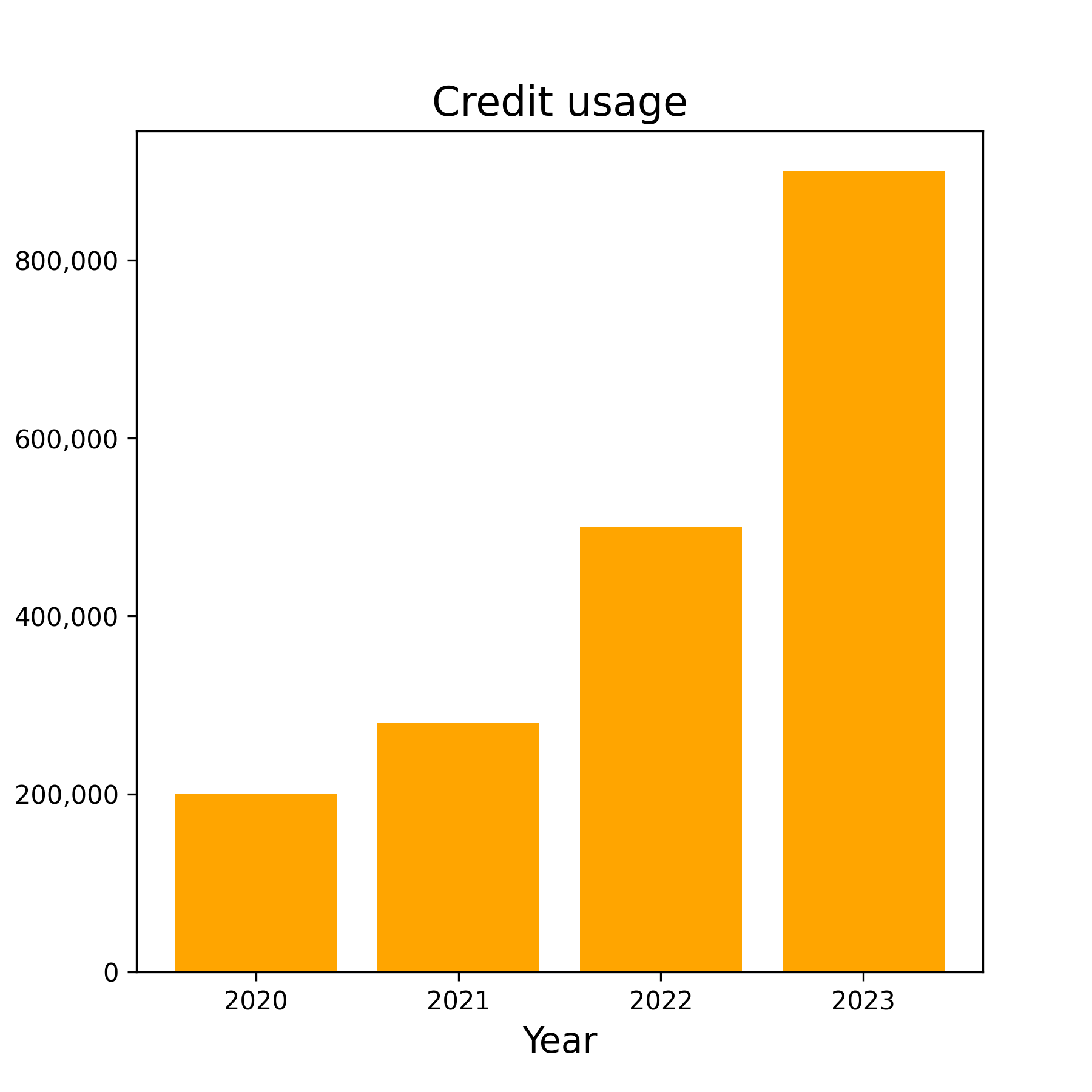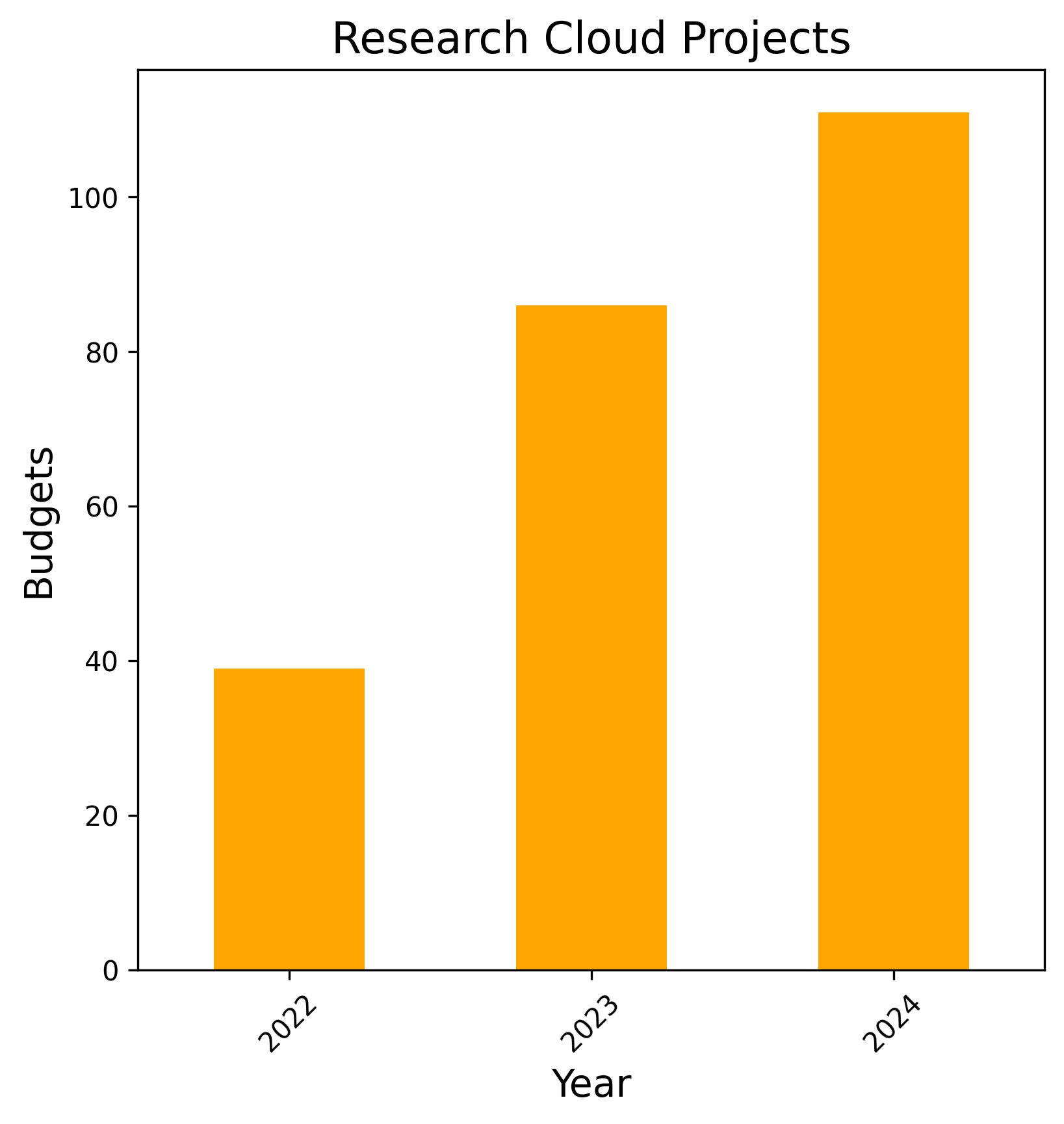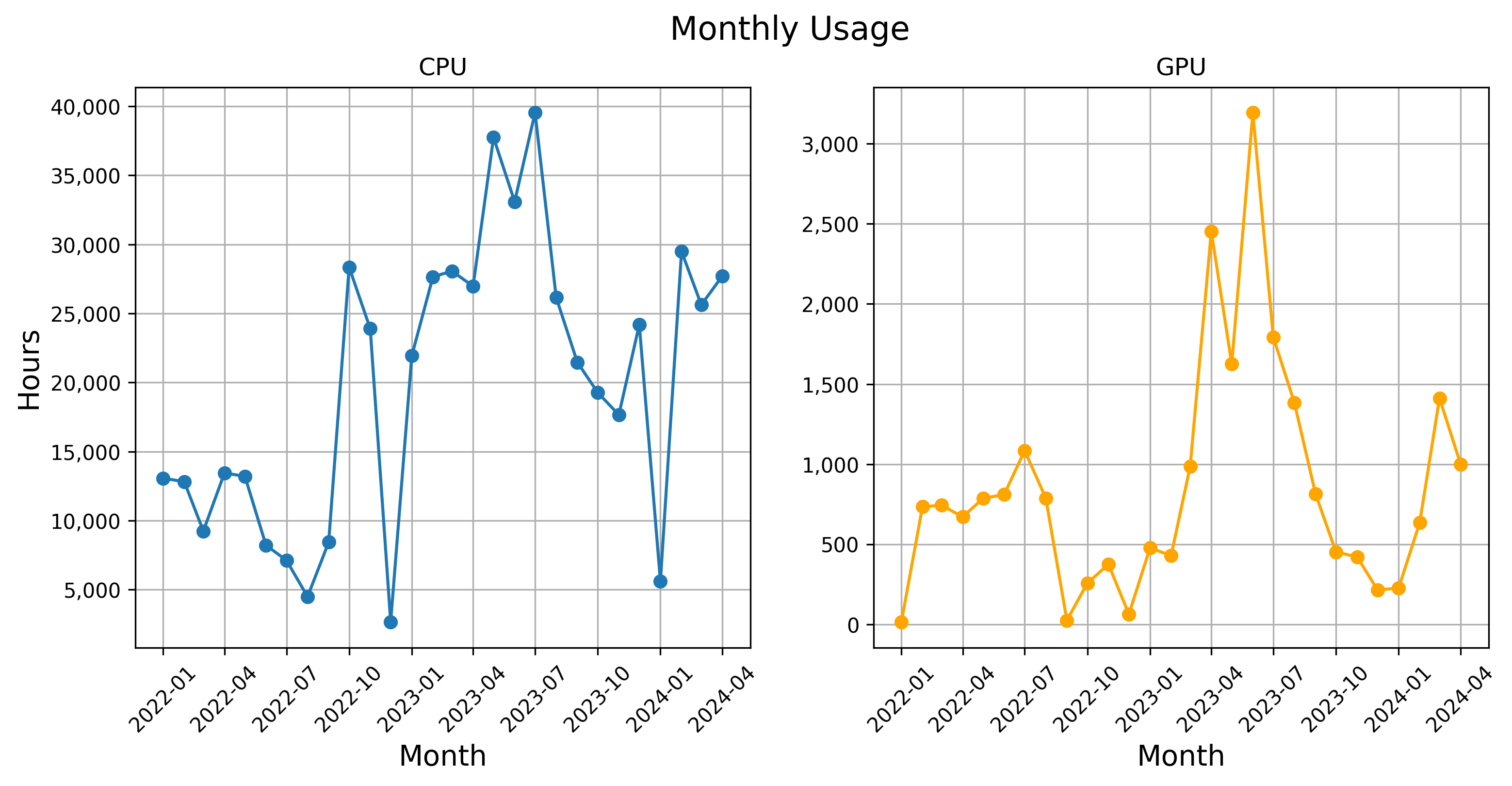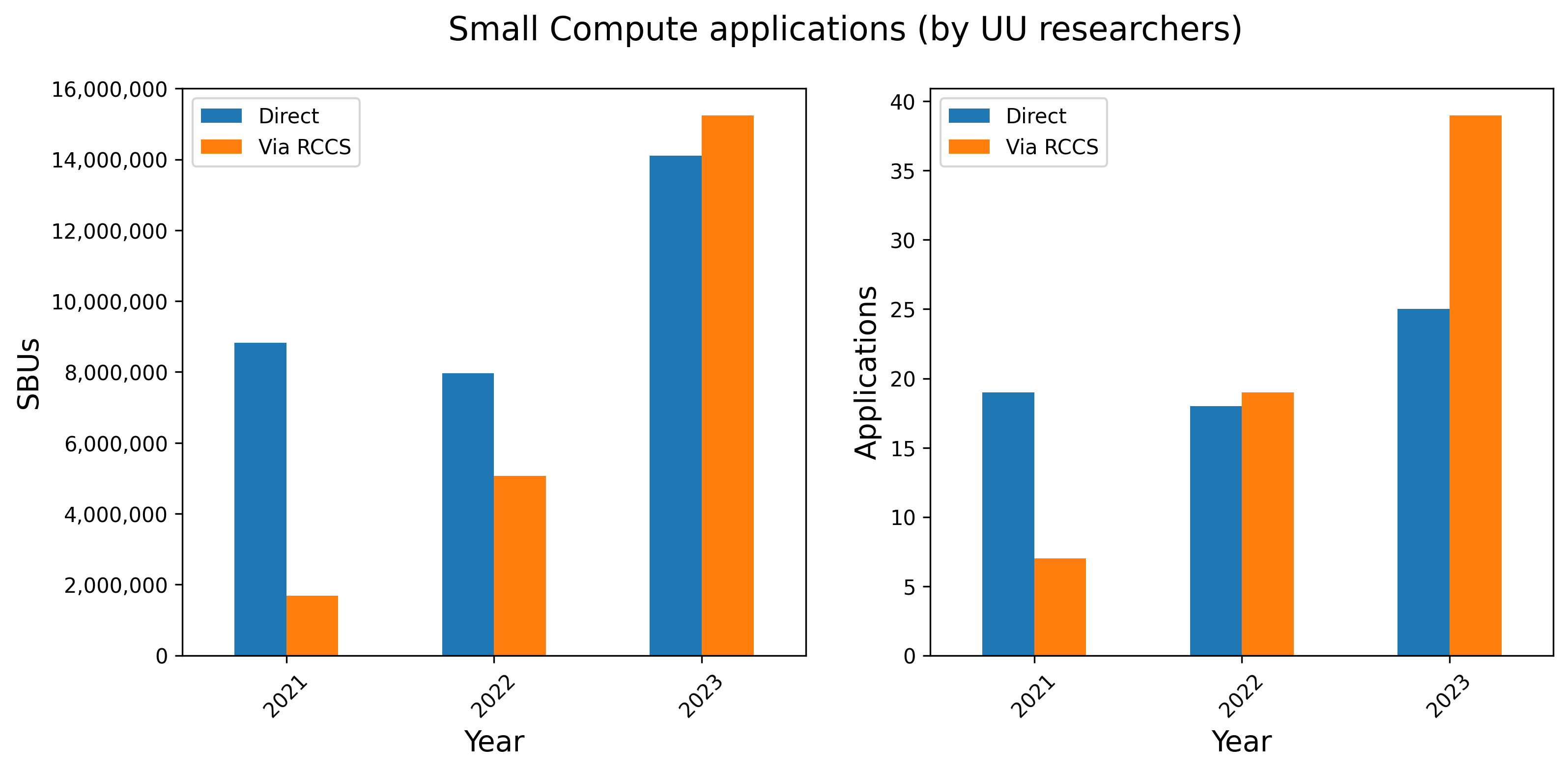Low-barrier access to cloud computing on ResearchCloud
a case study
Jelle Treep & Dawa Ometto
Introduction
Research Data Management Services @ Utrecht University:
- Research IT & Engineering
- Yoda
- Applications (GitHub)
- → HPC support & access
Introduction
- Large increase in demand for HPC.
- No longer just for clusters, but also for Virtual Research Environments (VRE)!
- At UU, we meet this demand using SURF services:
- Snellius
- ResearchCloud (VRE)
- RCCS contracts
Research Capacity Computing Service
RCCS gives institutes direct access to SURFs compute facilities:
- Lowering barriers
- Snellius & SURF Research Cloud
- Expertise
- pay-per-use model
Research Capacity Computing Service
Costs:
- 1.000 RCCS-credits - 33,14 euro
- ~0,03 euro per CPU hour on Research Cloud
- ~0,025 euro per CPU hour on Snellius
- Access to commercial cloud (varying cost)
How do we organize access?

- Intake with engineer (30 minutes)
- Starting budget of 10.000 credits
- → Onboarding time ~2 days
Support
Support provided by Research Engineers:
- Getting started workshop (SRC)
- Catalog development (SRC)
- Basic user support (Snellius and SRC)
- Weekly walk-in hours
History
- RCCS @ UU runs for ~8 years (Kees van Eijden)
- From ~10 users to >100 users
- 1 every 2 months to 5 per week (peak)

Research Cloud projects

| Faculty | Projects |
|---|---|
| Geosciences | 16 |
| Science | 28 |
| Humanities | 20 |
| Social Sciences | 17 |
| Law and Economics | 13 |
| Veterinary Medicine | 13 |
CPU vs. GPU on Research Cloud


Source: NWO
What do we learn from this?
- Large and growing demand for flexible HPC solutions
- Small-medium (VRE) as well as large (Snellius) scale.
- Across all faculties.
- RCCS starting budgets help researchers to conduct exploratory studies, often leading to larger projects.
- 15 million credits granted after starting budget! (in 2023)
What do we learn from this?
Success factors at UU:
- Close cooperation with SURF
- Low-barrier onboarding & support
- Engineering support
- Reliable and reusable VRE environments
- Hands-on customization
- Good relations with IT groups at faculties
What do we learn from this?
Most importantly:
- Support team of engineers, developers, admins
- since end of 2023: 1 dedicated engineer
Future challenges
Challenges when scaling up further:
- Ensuring enough user support and intake capacity, together with faculties
- Meeting needs for custom engineering
- Billing recurring large users internally
Links


https://edu.nl/pthd4